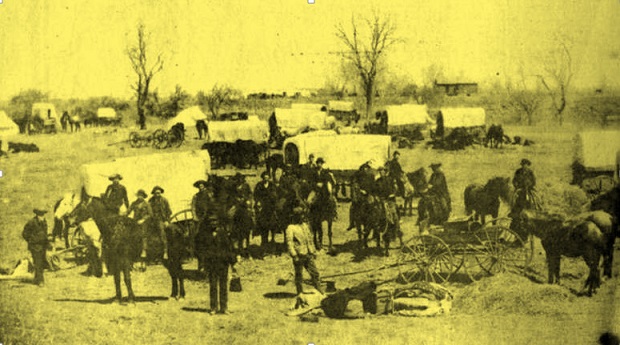
There are times I just get GIDDY over a good document. (Yes, my life is that lame.) Imagine my euphoria, then, when I came across this enticing missive from Helen Churchill Condee published in Harper’s Weekly, February 23, 1901…
Not all of us are successful in life; possibly this is because we have not had a fair chance. The government of these United States, while it is looked upon as a cold, unapproachable body, like a corporation, once conceived the beneficent plan of giving a chance for success to any of its sons who chose to take it.
What a rich framing of the initial land runs in Oklahoma – “a beneficent plan of giving a chance for success to any of its sons who chose to take it.”
I could spend a week on that sentence. Beneficent? Really? I thought the Boomers and others raised such a fuss the powers-that-be finally caved.
Look at the nuance in ‘chance’ for success (kinda like the right to ‘pursue’ happiness) for any ‘sons’ (it was still a man’s world, in law and on paper at least) who ‘chose to take it’. The American Dream may have evolved since the days of Horatio Alger (think Little Orphan Annie as a dude, or Oliver Twist without the British accent), but the ‘live right, dare big, work hard’ ethic of such tales still drove expansion and those willing to migrate into opportunity.
In pursuance of this plan a tract of land containing about three million acres was thrown open in the middle of the Indian Territory, and every one was at liberty to take possession of one hundred and sixty acres without price. This was the beginning of Oklahoma, a Territory with a romantic and marvelous history of prosperity crowded into the short time of eleven years…
This is the chance Uncle Sam is to give his unsuccessful sons and certain of his daughters.
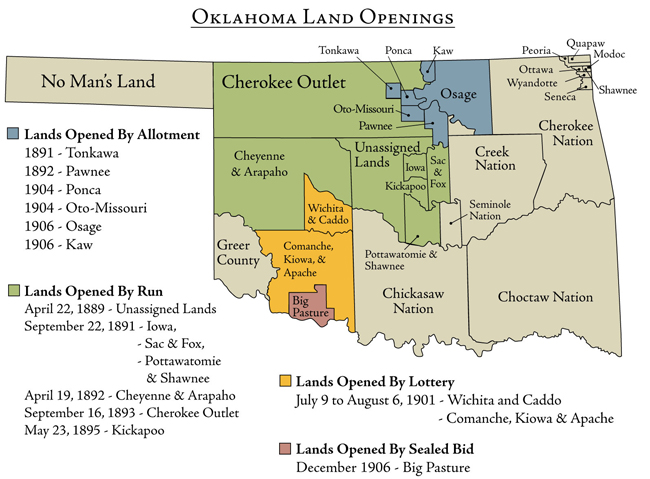
When was the last time you thought of Oklahoma as a land ‘with a romantic and marvelous history of prosperity’? And this was almost a decade before the oil boom! But Condee was right – our little state-to-be had become the last great hope for white homesteading anywhere on the continent.
Which, you know, was exciting for white homesteaders, at least…
The new tract is the reservation of the Kiowa and Comanche Indians, with the possibility of the inclusion of the Wichita lands. It is not easy to decide on the justice of the question so far as the original owner, the Indian, is concerned.
Those who live far from him look with disapproval on the gradual crowding into smaller and yet smaller space, of the taking away of his hunting-grounds and giving him the beef issue, of beggaring him by way of forcing civilization, of breaking even the treaties sworn to hold “as long as grass grows and water runs.”
It’s easy to forget in retrospect that many of the same complexities we recognize in history were being wrestled with as current events. Condee pairs land allotment – the most recent process by which Amerindians had been stripped of their land – with the food allotments arranged by the same treaties. Which was more destructive, she seems to suggest – taking away the source of their own culture and self-provision, or maneuvering them into reliance on the outstretched whims of federal government?
As to ‘beggaring him by way of forcing civilization’ – I… I’m simply too aquiver to even analyze that one effectively.
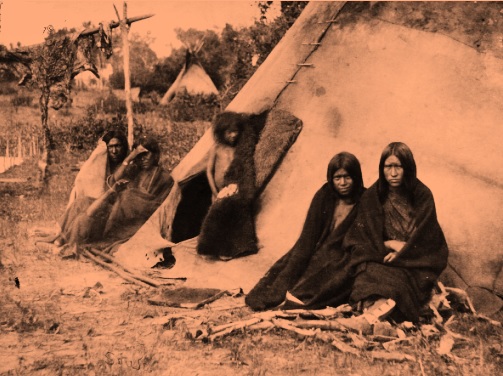
The U.S. picked a largely unjust war with Mexico, to be sure, but at least at some point war was declared, whatever the pretext. The vast majority of Amerindians were ethnically cleansed through handshakes and smiles and warmest assurances. The 19th century saw the U.S. perfect the art of stabbing you in the back for your own good, then resenting the few shoddy bandages it felt compelled to throw your way.
Or am I reading too much into seven words?
Those who live near the reservations see the Indian through different eyes. They regard him as a lazy, opulent child of fortune, possessing fertile lands, which lie fallow, himself rich through the simplicity of his needs and his share of the interest on the $43,000,000 which the government holds invested for his tribes.
There’s a whole separate post to be written about paper wealth and Amerindians. Most of the wilder tales involve oil money, but the dynamic here is similar – ‘lazy’ and ‘opulent’ sets a nice tension, and surely Condee recognized the cruel irony inherent in ‘child of fortune’.
The idea of untapped resources – especially LAND – was anathema to the white way of thinking. For the last generation of homesteaders all too aware their opportunities were quickly vanishing, it only fueled their resentment to see it ‘going to waste’.
And how much do you love Condee’s subtle rhetoric – ‘rich through the simplicity of his needs’ flowing almost as an afterthought into ‘and the interest on the $$$…’?
It angers a man who tills every acre of his quarter-section with unfailing industry to place his family above want to see his Indian neighbor, with boundless lands, cultivating but a tiny patch of corn, yet living in a cabin, keeping cattle, and driving off contentedly to receive from the government agent the issue of groceries and beef which the white man can only get in return for hard-earned dollars.
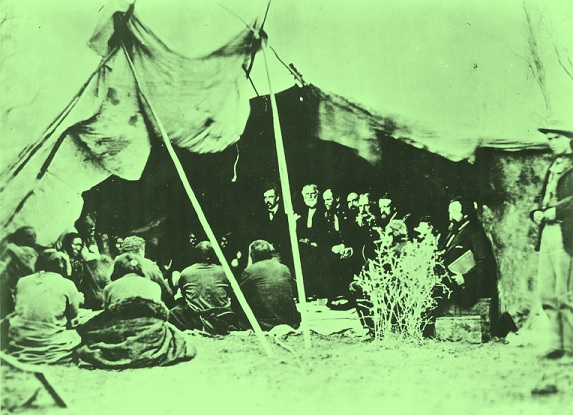
Condee would have made a great historian. (She actually did just about everything BUT that – she’s a story in and of herself.) Kudos to the white lady from the North who’s so able to put the reader into such a variety of other mindsets while maintaining her own narrative voice to hold it together.
Without the perspective lent by distance, the envious fail to see that the Indian’s rations are only a crumb of the just return he should be entitled to for evacuating all the continent except a few little reservations; and the white man covets. He does it so ingeniously, too, that its results work like logical morality, and crimes are committed under the excuse of civilizing the Indian.
‘Its results work like logical morality’ – Oh. My. God. Can you excuse me? I need a moment alone.
How easily we vainly assumed that kind of insight can only come in retrospect, with the benefit of distance and the perspective it allows. But at least one pithy babe was unraveling the human condition contemporaneously.
The lands about to be opened are some that have long been coveted by the white men. Greed of land grows on those who hold it.
But perhaps more on those who don’t.
I can’t help myself. We’ll have to continue this one – and talk a little more about Helen Churchill Condee. I’m still giddy – aren’t you?
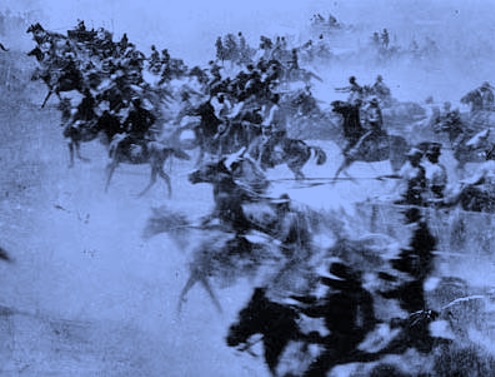
RELATED POST: A Chance In Oklahoma, Part II
RELATED POSTS: 40 Credits & A Mule, Parts I – VII
RELATED POSTS: Boomers & Sooners, Parts I – V

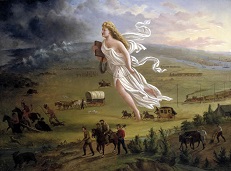 When my kids were little, we used to go to Bishop’s Cafeteria to eat with my dad. He was old, and old people like cafeterias – so we went.
When my kids were little, we used to go to Bishop’s Cafeteria to eat with my dad. He was old, and old people like cafeterias – so we went. 
 “DAD!”
“DAD!” 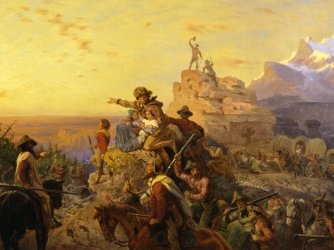 I’m overgeneralizing, of course – there were hundreds of tribes and cultures and such – but by and large, they weren’t doing proper America things with the lands they claimed as theirs. And, as with the Jello, subjected to repeated wiggling but remaining unconsumed, our frontiersmen forebears weren’t impressed by the arguments of those claiming that land ownership requires neither cultivation nor mall-building.
I’m overgeneralizing, of course – there were hundreds of tribes and cultures and such – but by and large, they weren’t doing proper America things with the lands they claimed as theirs. And, as with the Jello, subjected to repeated wiggling but remaining unconsumed, our frontiersmen forebears weren’t impressed by the arguments of those claiming that land ownership requires neither cultivation nor mall-building. 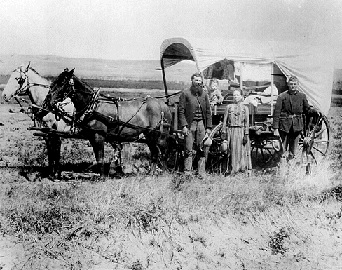
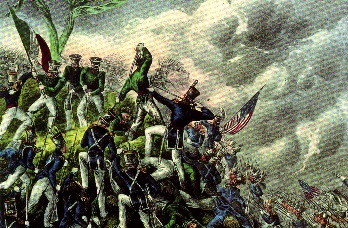 Conflict with Mexico was not much different. Their culture was nothing like most Amerindian peoples, but neither did we particularly fathom or appreciate their social structure, economic mores, or anything else – nor they ours. Perhaps outright disdain for one another played a larger role than with the Natives, and certainly by that point the sheer momentum of Westward Expansion eclipsed whatever underlying values or beliefs had fueled it a generation prior, but whatever the immediate motivations, the same sense of unquestioned rightness oozed from the words and letters of those pinche gabachos
Conflict with Mexico was not much different. Their culture was nothing like most Amerindian peoples, but neither did we particularly fathom or appreciate their social structure, economic mores, or anything else – nor they ours. Perhaps outright disdain for one another played a larger role than with the Natives, and certainly by that point the sheer momentum of Westward Expansion eclipsed whatever underlying values or beliefs had fueled it a generation prior, but whatever the immediate motivations, the same sense of unquestioned rightness oozed from the words and letters of those pinche gabachos 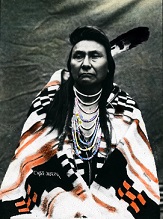 They were assigned a value system and lifestyle they didn’t want, with the full weight of state and federal governments forcing compliance. They were assigned the worst land on which to practice this new system, and given inadequate tools and other supplies. The stakes were incredibly high – at best, they were expected to emulate those with the right equipment, in which case they could perhaps almost survive as second-class citizens. More likely, they would fail, starve, or simply give up – this not being a game they’d wished to play anyway.
They were assigned a value system and lifestyle they didn’t want, with the full weight of state and federal governments forcing compliance. They were assigned the worst land on which to practice this new system, and given inadequate tools and other supplies. The stakes were incredibly high – at best, they were expected to emulate those with the right equipment, in which case they could perhaps almost survive as second-class citizens. More likely, they would fail, starve, or simply give up – this not being a game they’d wished to play anyway.